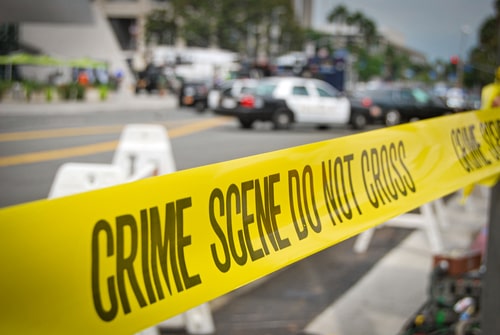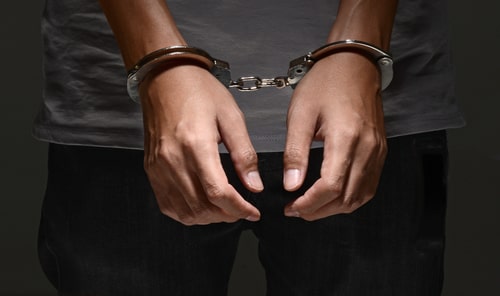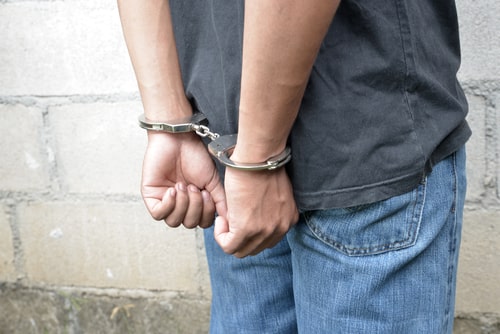Recent Blog Posts
What Exactly is a Motion to Revoke Probation?
 In Texas, probation (community supervision) is a common alternative to incarceration for individuals convicted of certain crimes. However, when a person fails to comply with the terms of their probation, they may face a Motion to Revoke Probation (MTR). A Texas lawyer can help you understand an MTR, how it works, and what you can expect if you find yourself in this situation.
In Texas, probation (community supervision) is a common alternative to incarceration for individuals convicted of certain crimes. However, when a person fails to comply with the terms of their probation, they may face a Motion to Revoke Probation (MTR). A Texas lawyer can help you understand an MTR, how it works, and what you can expect if you find yourself in this situation.
Make Sure You Understand Probation in Texas
Probation is a form of criminal sentencing that allows a person to remain in the community under the supervision of a probation officer. In Texas, probation can be granted for misdemeanors and felonies, with terms lasting from six months to ten years. Probationers must adhere to specific conditions, such as regularly reporting to their probation officer, maintaining employment, and refraining from drug and alcohol use.
The First Steps to Take After Being Charged with Homicide
 Being charged with homicide is an incredibly serious matter that requires immediate action to protect your rights and future. If you find yourself in this situation, you must understand the steps you need to take to navigate the legal process. A Texas lawyer can discuss the critical steps to take after being charged with homicide.
Being charged with homicide is an incredibly serious matter that requires immediate action to protect your rights and future. If you find yourself in this situation, you must understand the steps you need to take to navigate the legal process. A Texas lawyer can discuss the critical steps to take after being charged with homicide.
Understand the Charges and Remain Silent
In Texas, homicide charges can fall under several categories, including murder, capital murder, manslaughter, and criminally negligent homicide. Each of these charges carries different penalties and requires a specific legal strategy. You should understand the exact nature of the charges against you and the potential consequences you face.
One of the most important things to remember when facing homicide charges is to exercise your right to remain silent. Anything you say to law enforcement can be used against you in court. Politely inform the police that you wish to remain silent and that you want to speak with an attorney. Avoid discussing the details of your case with anyone except your lawyer.
What to Do If Charged with Human Smuggling in Texas
 If you face human smuggling charges, you should understand the severity of the situation and take immediate action to protect your rights. Human smuggling is a serious offense that can lead to severe penalties, including hefty fines and lengthy prison sentences. Make sure you understand the steps you should take if you are charged with human smuggling. You can benefit by having a Texas lawyer by your side during this process.
If you face human smuggling charges, you should understand the severity of the situation and take immediate action to protect your rights. Human smuggling is a serious offense that can lead to severe penalties, including hefty fines and lengthy prison sentences. Make sure you understand the steps you should take if you are charged with human smuggling. You can benefit by having a Texas lawyer by your side during this process.
Make Sure You Understand Your Charge
According to Texas Penal Code Section 20.05, human smuggling is the act of intentionally employing a motor vehicle, aircraft, watercraft, or any other means of transportation to move an individual to hide that person from law enforcement or escape from law enforcement. You must comprehend the specific allegations against you and the potential consequences you may face.
Understanding Bail Bonds and Pretrial Release in Texas
 The bail bond process is complex and requires understanding to navigate properly. Knowing your rights regarding pretrial releases for the crime you are being charged with is important, and having a Texas lawyer on your side can benefit the outcome.
The bail bond process is complex and requires understanding to navigate properly. Knowing your rights regarding pretrial releases for the crime you are being charged with is important, and having a Texas lawyer on your side can benefit the outcome.
What Are Bail Bonds?
When an individual is arrested, they can be granted bail, a sum of money paid to the court to ensure their appearance at future proceedings. If the defendant cannot afford the total amount of bail, there is assistance from a bail bondsman. The bondsman will charge a non-refundable fee (usually 10% of the total bail amount) and post the bond on the defendant’s behalf.
Texas provides various bail bond options, such as cash bonds, surety bonds, personal recognizance bonds, and property bonds. The type of bond used will depend on the defendant’s financial situation and the court’s discretion.
Defending Against Robbery Charges in Texas
 If you are facing robbery charges, it is crucial to understand potential defense strategies. A Texas lawyer can help you strategize how to defend against these serious charges. Every case is different, so it is important to have legal representation on your side.
If you are facing robbery charges, it is crucial to understand potential defense strategies. A Texas lawyer can help you strategize how to defend against these serious charges. Every case is different, so it is important to have legal representation on your side.
Understanding the Charges
First, make sure you know how robbery is defined robbery under Texas law. According to Texas Penal Code Section 29.02, robbery involves intentionally, knowingly, or recklessly causing bodily injury to another or placing someone in fear of imminent bodily injury or death while in the course of committing theft. Aggravated robbery, a more severe charge, involves the use or exhibition of a deadly weapon during the crime.
Challenging the Evidence
A primary defense strategy is to carefully analyze and question the prosecution's evidence. This may involve challenging eyewitness testimony for inconsistencies, questioning the reliability of identification procedures, or exposing flaws in the collection and handling of physical evidence. If the evidence against you is weak or tainted, your defense attorney can argue for a dismissal or acquittal.
Your Rights When Facing Internet Crime Charges in Texas
 The internet brings both opportunities and risks—including the potential for facing accusations of online crimes. If you find yourself in this situation, it is essential to understand your rights under state laws so you can protect yourself. A Texas lawyer can help you determine the best way forward based on your circumstances.
The internet brings both opportunities and risks—including the potential for facing accusations of online crimes. If you find yourself in this situation, it is essential to understand your rights under state laws so you can protect yourself. A Texas lawyer can help you determine the best way forward based on your circumstances.
What Behaviors Qualify as Internet Crimes
Texas statutes specify a range of online behaviors that authorities can charge as internet-related crimes. These include the following:
- Cyberbullying and Harassment: Using digital communications to repeatedly stalk, threaten, impersonate, or otherwise intensely torment other people.
- Hacking: Intentionally accessing someone’s computer, network, email, social media, or other digital system without authorization.
Penalties for Passing Through Red Lights in Texas
 Running a red light is extremely dangerous and against the law in Texas. Even if you run a red light accidentally, you could face fines, license points, and increased insurance rates. A Texas lawyer familiar with traffic offenses can help you break down the specific penalties for running red lights to understand the potential consequences and build a strong case.
Running a red light is extremely dangerous and against the law in Texas. Even if you run a red light accidentally, you could face fines, license points, and increased insurance rates. A Texas lawyer familiar with traffic offenses can help you break down the specific penalties for running red lights to understand the potential consequences and build a strong case.
Potential Criminal Charges
If you run a red light in Texas, you may face criminal charges, traffic fines, and penalties. Generally, running a red light is a traffic infraction rather than a criminal offense. However, if you cause an accident by running the light that results in serious injuries or a fatality, you could potentially be charged with:
- Manslaughter or criminally negligent homicide if another person dies
What is Compassionate Release?
 Compassionate release is a process by which incarcerated individuals can be released early due to extraordinary or compelling circumstances. It allows eligible inmates to finish their sentences under supervision outside of prison. This process is governed under federal and state laws, with specific eligibility criteria and procedures that must be followed. A Texas criminal defense lawyer can help determine if you or a family member may have the potential for compassionate release.
Compassionate release is a process by which incarcerated individuals can be released early due to extraordinary or compelling circumstances. It allows eligible inmates to finish their sentences under supervision outside of prison. This process is governed under federal and state laws, with specific eligibility criteria and procedures that must be followed. A Texas criminal defense lawyer can help determine if you or a family member may have the potential for compassionate release.
Who is Eligible for Compassionate Release Consideration?
There are certain requirements that an inmate must meet to qualify for compassionate release consideration. At the federal level and in many states, including Texas, the following general criteria apply:
- The inmate must have an extraordinary or compelling circumstance, such as a terminal medical condition or advanced age and deteriorating health. Family circumstances like the death or incapacitation of a spouse or caregiver may also qualify.
How to Navigate a Charge for Passing a Stopped School Bus
 Getting pulled over and ticketed for passing a stopped school bus can be an unsettling and frustrating experience. However, understanding the law and your options is key to successfully navigating this type of traffic charge. A Texas criminal defense lawyer can help you break down the basics you need to know and how to move forward.
Getting pulled over and ticketed for passing a stopped school bus can be an unsettling and frustrating experience. However, understanding the law and your options is key to successfully navigating this type of traffic charge. A Texas criminal defense lawyer can help you break down the basics you need to know and how to move forward.
The Law in Texas
Texas has strict laws prohibiting drivers from passing school buses that are stopped to load or unload children. Under the Texas Transportation Code, both lanes of traffic must stop if a school bus displays its flashing red lights and extends its stop sign.
You are required to stop whether you are approaching the bus from the front or the back. It does not matter how many lanes there are—all traffic from both directions must come to a complete stop.
Penalties and Fines
The penalties for illegally passing a school bus in Texas depend on whether you are convicted, the number of offenses, and whether a child was endangered.
What to Do When Facing an Airport Firearm Charge?
 Traveling with a firearm can lead to serious criminal charges if not done legally and properly. Getting arrested for carrying a gun at an airport is a frightening experience. But there are steps you can take to protect yourself if you end up facing charges. A Texas criminal defense lawyer can help you navigate this charge.
Traveling with a firearm can lead to serious criminal charges if not done legally and properly. Getting arrested for carrying a gun at an airport is a frightening experience. But there are steps you can take to protect yourself if you end up facing charges. A Texas criminal defense lawyer can help you navigate this charge.
Understand the Charges
The first thing to understand is what the potential charges are that you may face under federal and state law. The most common charge for carrying a gun to a security checkpoint is “possession of a weapon in a prohibited place” under the Texas Penal Code. This is a third-degree felony punishable by two to 10 years in prison. You may also face charges under federal law for carrying a firearm or ammunition into a secured area of an airport, which can lead to fines and up to 10 years imprisonment. The facts and circumstances will determine the actual charges.





